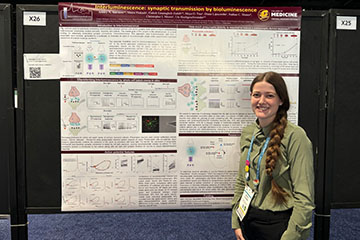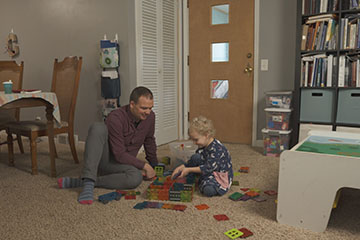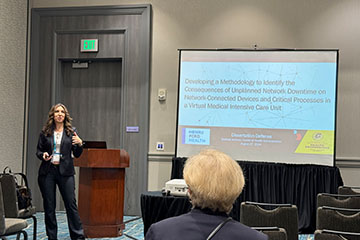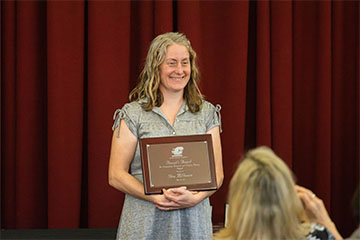Doctoral graduate explores how PTSD, impulsivity, and gaming behaviors influence one another
Cayla Mitzkovitz, a recent doctoral graduate in clinical psychology, researched the connection between post-traumatic stress disorder and internet gaming disorder. Individuals with PTSD often develop addictive behaviors, such as IGD, to cope with mood and cognition changes. These addictive behaviors temporarily alleviate stress caused by PTSD, but hinder treatment success.
Mitzkovitz sought to address the gap in research on PTSD and IGD by exploring the complex relationships between changes in cognition associated with trauma, negative urgency, and their relationship with problematic levels of internet gaming. Mitzkovitz sampled 74 adults and found individuals with PTSD appeared to be at risk for developing problematic gaming behaviors similar to what is observed in IGD.
Mitzkovitz also expected to find a link to explain how PTSD, impulsivity, and gaming behaviors influence one another. She hypothesized negative urgency and negative alterations in cognition and mood would explain the relationship, but there seems to be more at play. Mitzkovitz says, “It’s possible that the relationship between these three variables is much more complex than the model I used in this study captured.”
The inspiration for Mitzkovitz’s study began with her experiences with Reid Skeel, Ph.D., and his lab. In the lab, Mitzkovitz investigated problematic behaviors as they relate to aspects of impulsivity and completed her thesis on impulsivity and problematic phone use in college students. From there, Mitzkovitz began a therapy practicum at the Aleda E. Lutz VA and observed that veterans with PTSD and a substance abuse problem appeared to correlate with playing video games to a problematic extent. Mitzkovitz says, “I began to wonder if there was some way that negative urgency was fueling this tendency for those with PTSD to seek playing video games to a problematic level. And my dissertation was born.”
Mitzkovitz began her post-doctoral neuropsychology residency at the Edith Nourse Rogers VA in Bedford, Massachusetts, and will continue to work toward becoming a licensed neuropsychologist.
This story is brought to you by the Office of Research and Graduate Studies.




